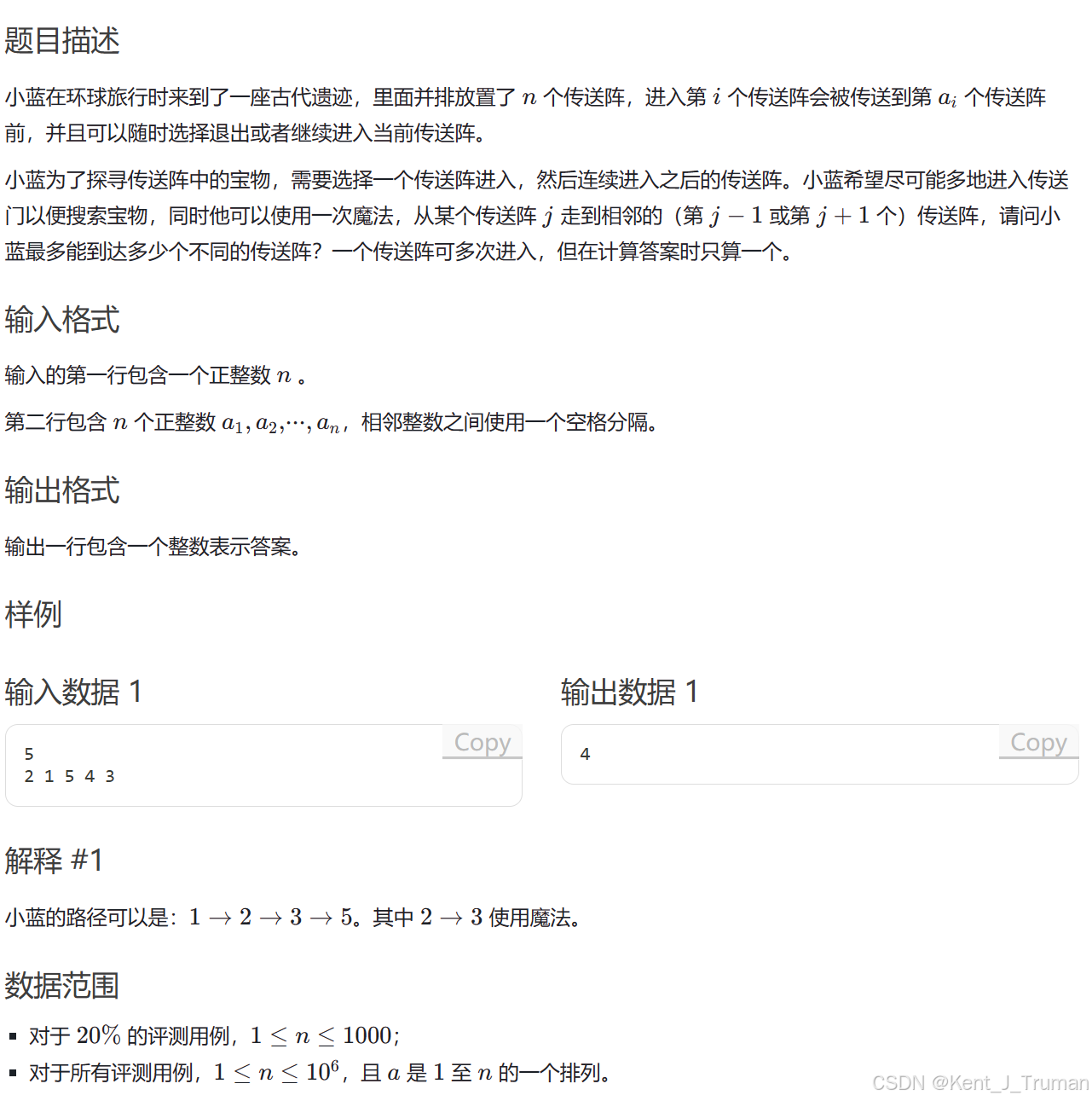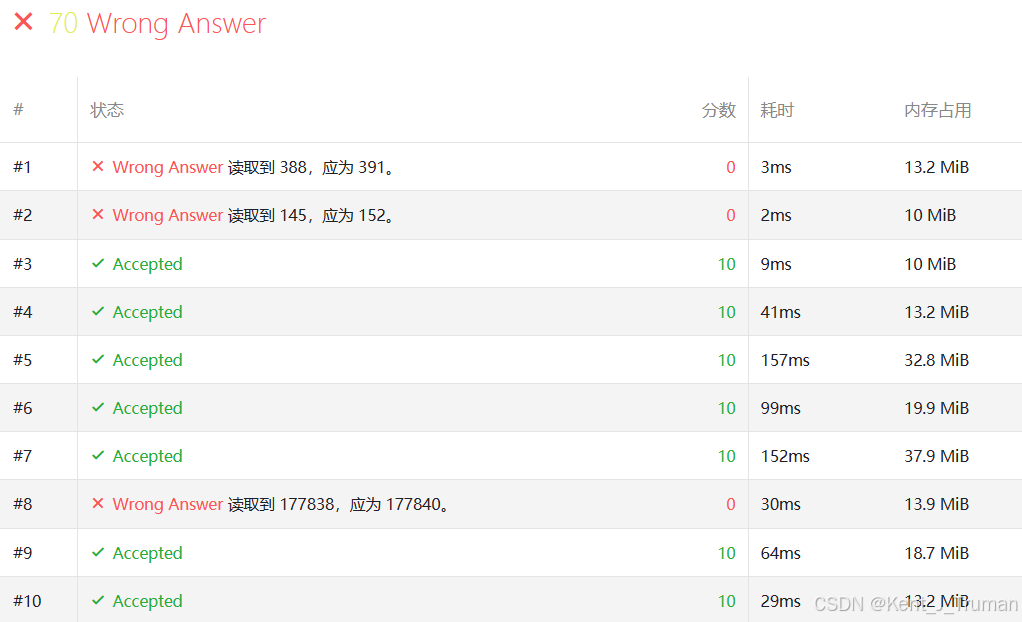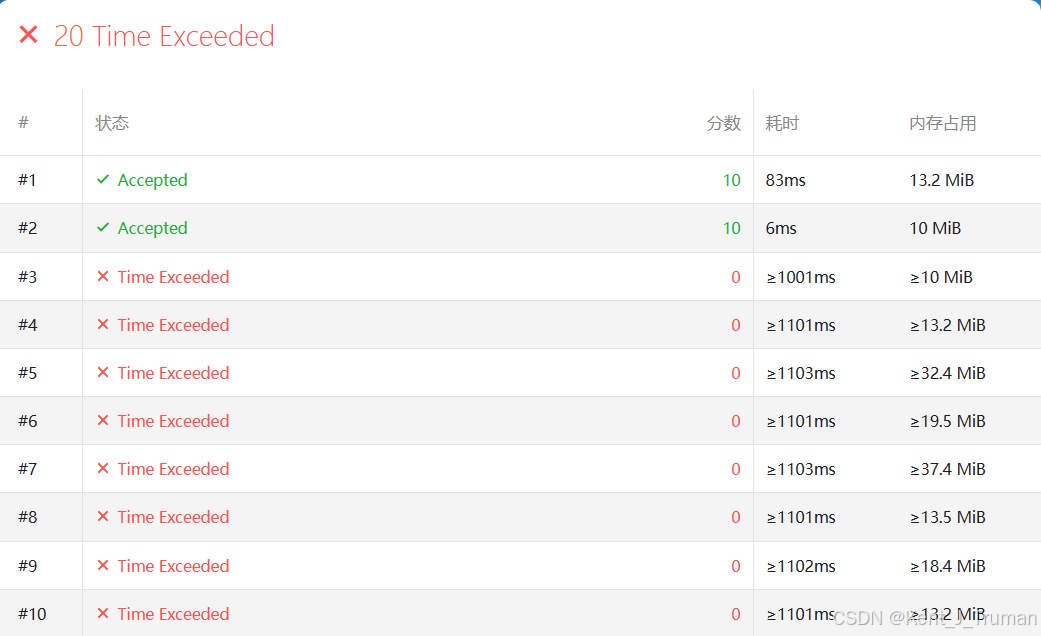题目

问题代码
cpp
#include<bits/stdc++.h>
using namespace std;
const int N = 1e6+10;
int n;
int porter[N];
int ans;
int sign[N];
bool used;
void dfs(int now, int cnt)
{
if(sign[now] && used)
{
ans = max(ans, cnt);
return;
}
if(!sign[now])
{
cnt++, sign[now] = 1;
dfs(porter[now], cnt);
}
if(!used)
{
used = true;
dfs(now-1, cnt);
dfs(now+1, cnt);
used = false;
}
}
int main()
{
ios::sync_with_stdio(0);
cin.tie(0);
cout.tie(0);
cin >> n;
for(int i = 1; i <= n ; i++) cin >> porter[i];
for(int i = 1; i <= n; i++) dfs(i, 0);
cout << ans;
return 0;
}分析

修改
我想了一下,可能是由于回溯的问题。因为我定的是全局变量sign和used,所以回溯应该要逐个回溯。而且我还忘了边界限制。修改如下
cpp
#include<bits/stdc++.h>
using namespace std;
const int N = 1e6+10;
int n;
int porter[N];
int ans;
int sign[N];
bool used;
void dfs(int now, int cnt)
{
if(sign[now] && used)
{
ans = max(ans, cnt);
return;
}
if(!sign[now])
{
cnt++, sign[now] = 1;
dfs(porter[now], cnt);
sign[now] = 0;
}
if(!used)
{
sign[now] = 1;
used = true;
if(now-1 >= 1) dfs(now-1, cnt);
//used = false;
//sign[now] = 0;
sign[now] = 1;
used = true;
if(now+1 <= n) dfs(now+1, cnt);
used = false;
sign[now] = 0;
}
}
int main()
{
ios::sync_with_stdio(0);
cin.tie(0);
cout.tie(0);
cin >> n;
for(int i = 1; i <= n ; i++) cin >> porter[i];
for(int i = 1; i <= n; i++) dfs(i, 0);
cout << ans;
return 0;
}再分析

可以看出原本不过的样例过了。说明修改可能正确了,但是因此也增加了时间消耗。